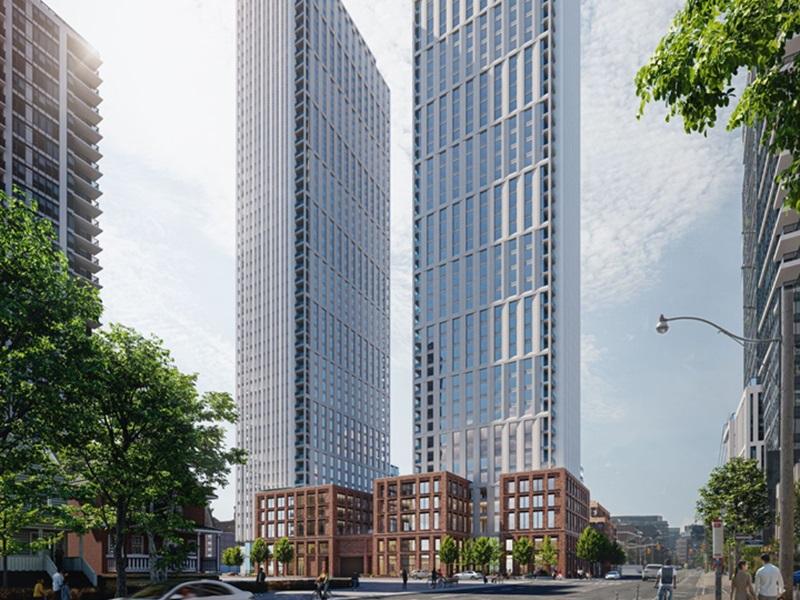With all the focus in the media these days on an overcharged housing market, it can be easy to forget the challenges with affordability that continue to face those on the lower end of the economic spectrum.
The true victim of the current situation is not that poor soul with annual household income of $200,000-plus and a $450,000 down payment who gives up on their house hunt after losing multiple bidding wars.
It’s the person of far more modest means for whom “affordable” continues to climb out of reach in our larger cities.
That person working a front-line customer service job at risk to their health during a pandemic – whom we have (or should have) come to appreciate just a little bit more.
That legion of other people who have lost jobs and income because of the pandemic. The working mothers who have had to choose between their jobs and the needs of their families.
And let’s not forget the truly disenfranchised level of society – those who struggle with homelessness, often with substance abuse and mental health issues adding to their challenges. Many of them could and would turn their lives around if only they could get a leg up.
Is it as simple as snapping up empty apartments?
I’ve been reading in my local paper in recent weeks about the untenable situation of Ottawa families on waiting lists for affordable housing being put up in hotels at taxpayers’ expense – to the tune of $3,000 a month.
Some commentators and housing advocates have called for City Hall to take advantage of the fact Ottawa’s rental vacancy is at a 16-year high. Instead of a $3,000/month hotel bill, lease an apartment for a family in need for $2,000 or less per month.
That could address a short-term need, but is it really the long-term fix?
Rents rise and will again. They have to. Anyone who argues in favour of rent control is forgetting that property managers inevitably blame an inability to raise rents for the deterioration of rental stock.
Why? Because there isn’t enough money coming in to cover the cost of maintenance. It is for this reason that “community housing” in many times and places has inevitably slid into slum conditions – the money is not available for proper maintenance.
Which brings us to the single largest conundrum of providing housing that is “affordable.”
All buildings wear out
All buildings need maintenance – month in, month out, year in, year out – forever. Over the total useful life of a structure, many of the components will need repair and replacement. The issue then becomes who is able and willing to pay for these repairs.
For any type of housing, the rule of thumb to which I adhere is to budget one to 1.5 per cent of its current replacement cost per year for annual or periodic maintenance.
It is unfortunately the political norm that the photo op of opening a new housing project is much more appealing than being on site when a roof replacement is being done. Both cost money, but the former is more attractive from a public relations perspective.
Budgeting for maintenance is not the only factor to be considered for a workable affordable housing strategy.
Cost to build
Construction costs are a factor. Whether it’s meant to be “affordable” or sold at regular market rates, the cost to build a residential unit is about the same if you are building to code and to be climate-friendly.
Development costs and extending city infrastructure to service the land if you are extending the urban boundary are also all going to be the same.
Land bears its own cost
Location drives the cost of land and land cost is made up of the cost of servicing and the cost of acquiring land in the first place.
Over time and in all significant Canadian cities, the market price of land has risen and continues to rise.
The impact of two-income households
Household income is the elephant in the room.
With interest rates at a low level and many households having two incomes, these higher-income households can afford to take on more debt and bid up the price of housing. Single-income households are disadvantaged and low-income households even more so – they just can’t compete.
Somebody has to pay . . .
There are three ways to make affordable housing possible where those at the lower end of the income curve get outbid and to ensure it is properly maintained for the extent of its useful life:
– a philanthropist with deep pockets has to be feeling generous;
– the taxpayer in one way or another must foot the bill;
– or the income must be diverted from some other source.
However, no matter how you cut it, someone has to pay on behalf of those who can’t.
One option that is being explored in Ottawa and elsewhere is to consider mixed-use development, where some percentage of the residential units are deemed affordable and priced accordingly. The income from the other rental units and the commercial tenants subsidizes the affordable housing units.
But again, somebody is paying the bill by agreeing to accept less revenue and lower margins from the property (or part of it) as an investment.
. . . And should pay
There is no easy answer but doing nothing is not an option.
The key thing is that the ongoing cost of maintenance must always be addressed at the outset. It shouldn’t be hidden or buried or otherwise ignored. And it can’t be passed on to the resident.
Look at it this way – the rest of us who are reasonably well off and comfortable must consider a greater good and the societal benefit of paying our share to make life liveable for those who are disadvantaged by the volatility of market forces.
This is just the decent thing to do. It’s also the only way to ensure a segment of our population is not left so vulnerable and desperate they will resort to doing whatever they must to survive.
To discuss this or any valuation topic in the context of your property, please contact me at jclark@regionalgroup.com. I am always interested in your feedback and suggestions for future articles.







